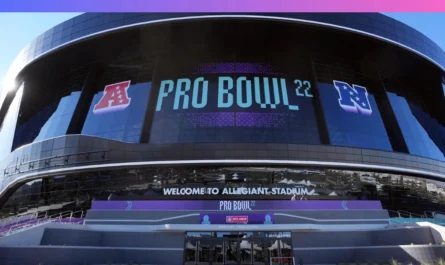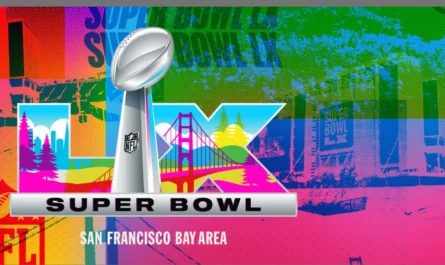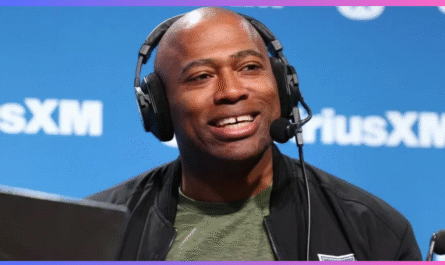The NFL, a league built on intense rivalries and physical prowess, has once again found itself in the spotlight for a contentious on-field incident and the resulting application of its rules. This time, the focus is on a game-defining moment between the Kansas City Chiefs and the Los Angeles Chargers and the fiery response from Chiefs’ head coach, Andy Reid. The incident in question—a forceful, open-handed slap by Chargers defensive tackle Teair Tart to Chiefs tight end Travis Kelce’s head—has sparked a widespread debate, with many fans, analysts, and now, even one of the league’s most respected coaches, questioning the officiating and the rules themselves.
The core of the controversy lies in the fact that Tart was not ejected from the game despite the aggressive nature of his action. This has led to intense scrutiny and is precisely what has prompted Andy Reid on Tart Kelce Slap Ejection Rule to voice his confusion and frustration.
The Incident: A Slap That Shook a Game
The highly anticipated Week 1 matchup between the Chiefs and the Chargers in Brazil was a hard-fought contest. In the third quarter, after a short run by the Chiefs, a scuffle broke out at the bottom of the pile. As players untangled, Tart was seen making a swift, open-handed strike to Kelce’s helmet, an action that was immediately flagged for unnecessary roughness. The 15-yard penalty was enforced, but to the astonishment of many, Tart remained in the game.
This decision was particularly baffling given the NFL’s recent emphasis on player safety and cracking down on unsportsmanlike conduct. Just a day earlier, Philadelphia Eagles defensive lineman Jalen Carter was ejected from a game for spitting at an opponent, an action deemed “flagrant” and worthy of disqualification. The stark contrast between these two calls has fueled the conversation and brought the inconsistency of the league’s rules to the forefront. This is exactly the kind of situation that brings out the frustrations that are embodied in the widespread discussion about Andy Reid on Tart Kelce Slap Ejection Rule.
Andy Reid Speaks Out: “I Don’t Understand That Rule”
Following the game, a visibly perplexed Andy Reid addressed the media, directly questioning the NFL’s rationale. “I don’t understand that rule,” he stated, referring to the decision to not eject Tart. Reid’s comments were not a wild tirade, but rather a measured and pointed critique of a rule that he believes is fundamentally flawed. He continued, “I guess it’s open-hand, fist, whatever, I don’t know what their decision was on that, but he definitely got hit in the head pretty hard whether it was an open fist or a closed fist.”
Reid’s observation highlights a critical issue: the distinction between an open hand and a closed fist in determining the severity of an infraction. He rightly pointed out that a forceful strike to the head, regardless of the hand’s position, can cause significant harm. The fact that the rule seems to differentiate based on this detail is what makes Andy Reid on Tart Kelce Slap Ejection Rule such a compelling topic for debate.
Fact Check: The NFL Rulebook and Its Interpretations
To understand the officials’ decision and Andy Reid’s frustration, it’s essential to look at the NFL rulebook. The rules state that an official has the discretion to disqualify a player for a “flagrant” foul, even on the first occurrence. According to former NFL referee and rules analyst Terry McAulay, who commented on the broadcast, NFL officiating executive Walt Anderson clarified that the lack of an ejection was due to the contact being an open-handed slap and not a closed-fisted punch. The officials on the field apparently did not deem Tart’s action to be “flagrant” enough for an automatic disqualification.
However, as Andy Reid on Tart Kelce Slap Ejection Rule points out, this interpretation appears inconsistent with the league’s stated goals. A blow to the head, regardless of how it is delivered, can be dangerous. The ambiguity in the rulebook allows for subjective interpretation, and this incident is a prime example of how that subjectivity can lead to controversial outcomes.
This incident has also brought into focus the NFL’s Personal Conduct Policy, which aims to hold players accountable for their actions on and off the field. While the Tart slap falls under on-field player conduct, the spirit of the policy is to prevent dangerous and unsportsmanlike behavior. The decision to allow Tart to continue playing seems to run counter to that spirit. The widespread attention on this incident further solidifies why there is such a strong public interest in the nuanced discussion of Andy Reid on Tart Kelce Slap Ejection Rule.
The Impact on the Game
The decision to keep Tart in the game had a tangible impact on the final outcome. He remained on the field and later made a crucial play, batting down a Patrick Mahomes pass on a two-point conversion attempt that could have tied the game. The Chargers ultimately won 27-21. The non-ejection directly contributed to a game-changing play, further amplifying the outrage and proving the validity of the debate initiated by Andy Reid on Tart Kelce Slap Ejection Rule.
In an era where every decision is dissected by fans and analysts in real-time on social media, the Tart incident has gone viral. The player himself even added fuel to the fire with a post on Instagram, appearing to mock Kelce and his fiancée, Taylor Swift, with a caption that read, “I’m too swift with it even in Brazil.” This kind of behavior only serves to highlight the need for consistent and decisive enforcement of on-field conduct rules, further reinforcing the importance of the dialogue sparked by Andy Reid on Tart Kelce Slap Ejection Rule.
The Call for Consistency: Why This Matters
The confusion expressed by Andy Reid on Tart Kelce Slap Ejection Rule is a sentiment shared by many in the football world. The league has repeatedly stated its commitment to player safety, especially concerning head injuries. A forceful slap to the head, even if open-handed, is a direct hit that goes against the very essence of that commitment.
The Tart-Kelce incident, when viewed alongside other recent ejections (like Carter’s for spitting), creates a picture of inconsistency. Fans and players alike need to have a clear understanding of what will and will not result in a disqualification. This clarity is essential for fair play and for maintaining the integrity of the game. The debate surrounding Andy Reid on Tart Kelce Slap Ejection Rule isn’t just about one play, but about the future of officiating and how the league protects its athletes.

For the NFL to truly live up to its promise of being a safer game, the rules need to be applied with a consistent, common-sense approach. It’s not about making a subjective call on the field in a split second, but rather ensuring that the rules themselves are clear and unambiguous. The dialogue surrounding Andy Reid on Tart Kelce Slap Ejection Rule is a valuable one, as it brings to light the necessary changes and clarifications that the league needs to address.
The Bigger Picture: Player Safety and Officiating
The controversy around Andy Reid on Tart Kelce Slap Ejection Rule goes beyond the Chiefs-Chargers rivalry. It is a microcosm of a larger, ongoing conversation about the role of officiating in modern football. With the game faster and more physical than ever, officials are under immense pressure to make split-second decisions that can alter the course of a game and, in some cases, a season.
The Tart-Kelce incident highlights the need for a more comprehensive review process for such actions. While the on-field call was to penalize for unnecessary roughness, perhaps there should have been a mechanism for a quick replay review by a central authority to determine if an ejection was warranted. This would remove the burden of a subjective, on-the-spot decision from a single official and ensure a more consistent application of the rules across all games.
The question of Andy Reid on Tart Kelce Slap Ejection Rule is also a question of precedent. Will a similar slap in a future game be treated in the same manner? Or will the league, in response to this controversy, issue a clarification or change in policy? The outcome of this discussion will set a new standard for what is and is not acceptable on the field. The focus keyword, Andy Reid on Tart Kelce Slap Ejection Rule, is a crucial marker for this pivotal moment in the league’s ongoing effort to balance the game’s physicality with player safety.
Conclusion: A Clearer Path Forward
The situation with Andy Reid on Tart Kelce Slap Ejection Rule is a critical talking point for the NFL. It has exposed a loophole in the rulebook and a significant inconsistency in its application. While the immediate focus is on the Chiefs and Chargers, the ripple effects will be felt across the entire league. For the sake of player safety and the integrity of the game, the NFL must take this feedback seriously. The open-handed vs. closed-fist distinction needs to be re-evaluated. A forceful strike to the head should always be considered a potentially flagrant foul, regardless of the hand’s position.
Andy Reid’s frustration is not just a coach defending his player; it is a veteran voice calling for a common-sense approach to a rule that seems to defy logic. The league has an opportunity here to learn from this incident and make the necessary changes to ensure that such a controversial decision, rooted in a questionable rule, does not happen again. This is why the conversation about Andy Reid on Tart Kelce Slap Ejection Rule will continue to dominate headlines. It’s a call for change, a plea for consistency, and a demand for a safer game for all. The widespread use of the focus keyword Andy Reid on Tart Kelce Slap Ejection Rule reflects the public’s deep interest in seeing this issue resolved.



